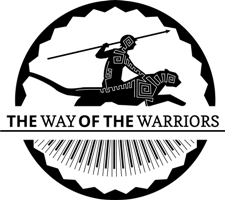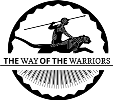At WOW, we extensively use the resources of natural medicine available throughout the western world in helping those who have PTSD. Not everyone needs to go to the mountains of South America and sit with the natural physicians, Mamos, and go through their intensive spiritual, dietary and psychological processes. The western world has deep-rooted natural medicine procedures that can help many. The natural medicine processes which we teach and advocate can be practised at home, in groups, and retreats. These practices allow the continuation of the work of the Mamos and also give sufferers of PTSD working tools to begin to gain an understanding and emotional and biochemical control of the PTSD.
Naturopathy can be considered a European combination of all natural medicine procedures as it encompasses diet and clinical nutrition, herbal medicine, exercise and manipulation. It also addresses the mental / emotional aspect using various modalities such as hypnosis and NLP (Neuro Linguistic Programming). (At this point we must emphasise the form of hypnosis that we use is Clinical Hypnosis and bears little if any resemblance to what you see on the television or stage shows. We will not try to convince you that you are a chicken or make you reveal inner secrets. Our emphasis is only in you understanding and being able to control your own reactions to the world around you.)
Naturopathy is an eclectic therapy which has been in existence for over a hundred years and is constantly evolving to include new research and understanding in the field of nutrition, diet and mental / emotional procedures. In its simplest form, it can be described as the ‘medicine that doctors have forgotten’. Naturopathy harks back to the time when we had no modern drugs. When people were ill a doctor would help the body to heal itself. The doctor would modify diet, discuss exercise and help define and remove all of the additional burdens that were weakening the patient. This was done with one aim in mind: to give the body the tools to perform its natural function – self repair. A naturopath encourages the body to utilise its innate ability to heal. This European tradition very much reflects the traditions of the indigenous healers with whom we work.
The principles and practice of naturopathy/natural therapeutics are as old as man himself. They derive from the combined knowledge of folk medicines, bone setting, herbal cures, dietary regimes, traditional medicine systems and the Hippocratic school of medicine – each contributing knowledge to the foundation of its theories. In recent times the traditions of the Eastern medical systems have begun to be included in western naturopathic practice. The tradition of naturopathy is an intimate part of the history and social fabric of Europe and our forebears. Naturopathy is in effect an eclectic medical system that is continually incorporating ‘the best of the best’; growing, evolving and improving.
Naturopathy emerged as a modern practice in 1895, when a German doctor, Scheel, used the term to describe his own methods of multi-disciplinary treatment. It was again applied by Benedict Lust, in 1902, to his combination of natural therapies, which aimed to ‘raise the vitality of the patient to a proper standard of health’. This aspiration is fundamental to the belief and practice of naturopathy, which is also sometimes called nature cure, natural medicine or nature medicine. It underlines the basic philosophy of naturopathy: that when given the opportunity, the body will always strive towards health and is its own best healer.
For those who suffer with PTSD we take them through processes of using diet to control endocrine dysregulation. In less fancy terms, this means adrenal surges and blood sugar fluctuations which are associated with anger, anxiety and panic states. Mood swings and depression can also be stress hormone based. By understanding and learning how to ‘eat right for control’, one learns physical and mental strategies to enable one to calm oneself and ‘think right’. Individuals with PTSD can find a considerable lessening of episodes and gain a greater sense of vitality and energy.
So What Do We Typically Do?
WOW and its support physicians run retreats and courses where they teach you to understand how what you eat affects your mood and energy. They will take you through basic nutritional counselling which enables you to deal with such things as binge eating and sugar craving. Typically this may involve the use of magnesium supplements and B12. The group will teach you how to safely assess yourself and also teach you basic skills which rely on former military training to enable you to achieve a calmer state and also change your perception of triggering events.
Much of the diet aspect is focused around ketogenic meals which have received a great deal of interest in their ability to calm endocrine and stress hormone based disorders.
Here is one of many publicly available resources about the benefit of the ketogenic diet. Notice it mentions a reduction in oxidative stress and inflammation. This greatly helps in conditions that require anti-inflammatories and painkillers. Often it can considerably reduce the need for analgesic drugs.
Ketogenic diet as a metabolic treatment for mental illness
Norwitz, Nicholas G.a; Dalai, Shebani Sethib; Palmer, Christopher M.c
Department of Physiology, Anatomy and Genetics, Oxford University, Oxford, UK
Metabolic Psychiatry Clinic, Department of Psychiatry and Behavioral Sciences, Stanford University School of Medicine, Stanford, California
Department of Postgraduate and Continuing Education, McLean Hospital, Harvard Medical School, Belmont, Massachusetts, USA


